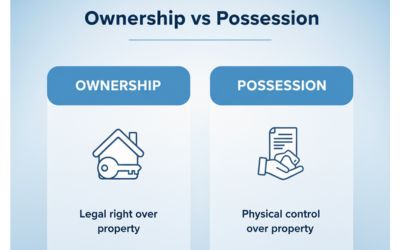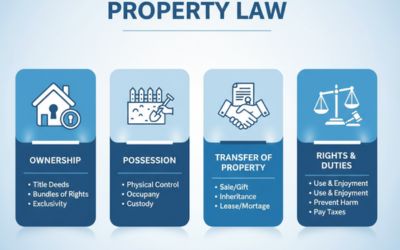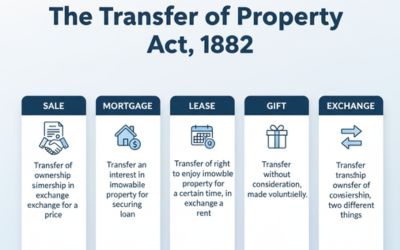Supreme General Films Ltd. v. Maharaja Brijnath Singh

Quick Summary
The Court confirmed the plaintiff’s legal character to seek a declaration (as mortgagee and decree assignee). It held that the disputed lease was hit by CPC Section 64 because an attachment already existed when the lease was made. The case was outside TPA Section 52 on lis pendens due to its basis in an earlier agreement. Result: the lease could not stand against the attachment; declaration granted accordingly.
Issues
- Could the plaintiff claim a declaration under Section 42, Specific Relief Act?
- Was the lease in favour of the appellant struck by lis pendens/attachment under CPC s.64 and/or TPA s.52?
Rules
- Market impact rule: Existing lessee rights reduce an auction buyer’s willingness to pay, affecting creditor recovery.
- CPC s.64: Private transfers of attached property are ineffective as against claims enforceable under the attachment.
- TPA s.52: Lis pendens prevents parties from defeating rights during a pending suit.
- SRA s.42: A person with a legal character or right to property can seek a declaration.
Facts (Timeline)

The Maharaja sued for a declaration that a lease over Sunder Vilas/Plaza Talkies in favour of the appellant was void against him.
Former owners (Bhatias) owed money; goods security fell short. On 29 Dec 1951, they mortgaged Plaza Talkies to the Maharaja.
Civil suit ended in a compromise allowing sale of the theatre. Central Bank’s decree rights were assigned to the Maharaja; attachment proceedings followed.
The company said it was lessee/tenant. It sought specific performance of an agreement to lease; a formal lease was later executed.
Trial Court and High Court decreed for the plaintiff, overruling the company’s defences.
Arguments
Plaintiff (Maharaja)
- As mortgagee and decree assignee, he had a legal character to seek declaration.
- The lease was ineffective due to attachment; auction buyer should take the theatre free of the lease.
Appellant (Company)
- Claimed status as lessee/tenant, including holding over.
- Lease flowed from an earlier agreement to lease; urged protection from lis pendens rules.
Judgment

The Supreme Court upheld the plaintiff’s right to a declaration. It ruled that the lease was struck by CPC Section 64 since an attachment existed when the lease was executed. The case did not need reliance on TPA Section 52 because the lease rested on an antecedent agreement; still, it could not defeat the attachment. The company’s claimed protections therefore failed.
Ratio
- Legal character: A mortgagee and decree assignee can seek a declaratory decree (SRA s.42).
- Attachment prevails: A transfer made after attachment cannot override rights under the attachment (CPC s.64).
- Lis pendens scope: Where a lease stems from a prior agreement, TPA s.52 may not apply; still, CPC s.64 can nullify its effect.
Why It Matters
This case shows that attachments protect creditor recovery. Private deals made after attachment—like leases—cannot reduce the value available at auction. It also clarifies how declaratory relief helps clean title for sale.
Key Takeaways
- Attachment first; private transfers later = ineffective against attachment.
- Declaratory suits can secure a clear sale for creditors and buyers.
- Not every dispute needs TPA s.52; CPC s.64 may decide it.
- Leases during litigation can lower auction price and harm creditors.
Mnemonic + 3-Step Hook
Mnemonic: ATTACH → AFFECT → AVOID
- Attach: Property is attached by court process.
- Affect: Later lease affects sale price and creditor rights.
- Avoid: CPC s.64 avoids the lease as against the attachment.
IRAC Outline
Issue
Is the plaintiff entitled to a declaration, and is the lease defeated by attachment/lis pendens?
Rule
SRA s.42; CPC s.64 on attachment; TPA s.52 on lis pendens; effect on auction value.
Application
Lease came after attachment; despite prior agreement, it could not override attachment rights; declaration proper.
Conclusion
Lease ineffective against the attachment; plaintiff’s declaration sustained.
Glossary
- Attachment
- Court seizure/control of property so it is available to satisfy a decree.
- Lis Pendens
- Rule that a pending suit prevents parties from changing rights to defeat the court’s eventual decision.
- Declaratory Decree
- A court’s formal statement of legal status or rights, without ordering further relief.
FAQs
Related Cases
Share
Related Post
Tags
Archive
Popular & Recent Post













































































































Comment
Nothing for now